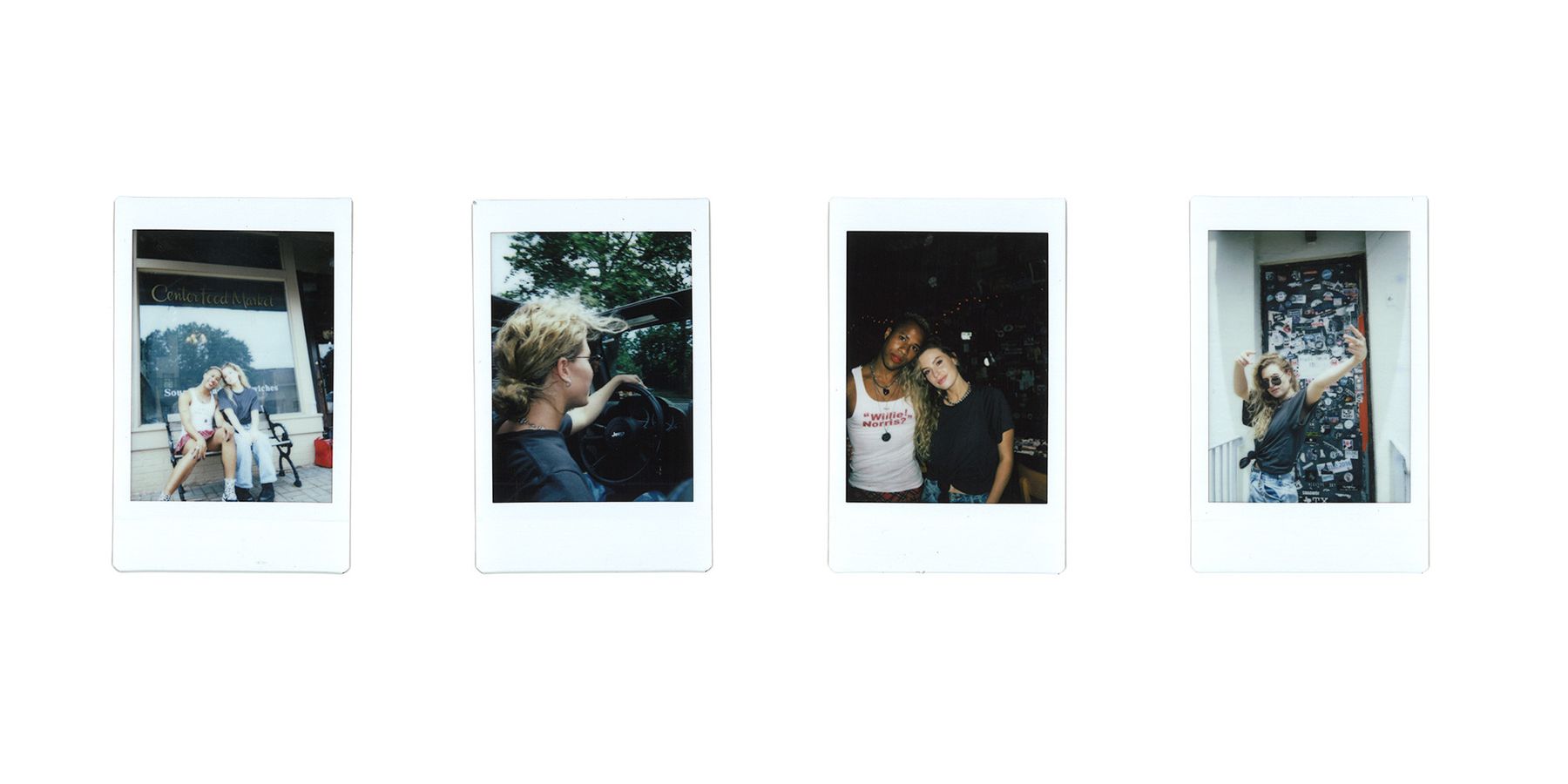
Cari Fletcher, the rising pop singer-songwriter who goes by her last name professionally, is visibly anxious, and she's not hiding it.
We're spending this midsummer day in her hometown of Asbury Park, New Jersey, an idyllic place as beloved for its quaint streets, white-sand beaches, and boardwalks as it is for birthing Bruce Springsteen. There, families are supported by schoolteachers, nurses, small business owners.
At Fletcher's recommendation, we're having salads and potato chips in a deli nearby Manasquan called Center Food Market, where she grew up eating. Fletcher is picking at her nails and fussing over her hair, which is tousled and windswept having driven over in a drop-top Jeep. The owner of the deli comes to greet her and talks about how she once recorded songs in the upstairs music studio with his son.
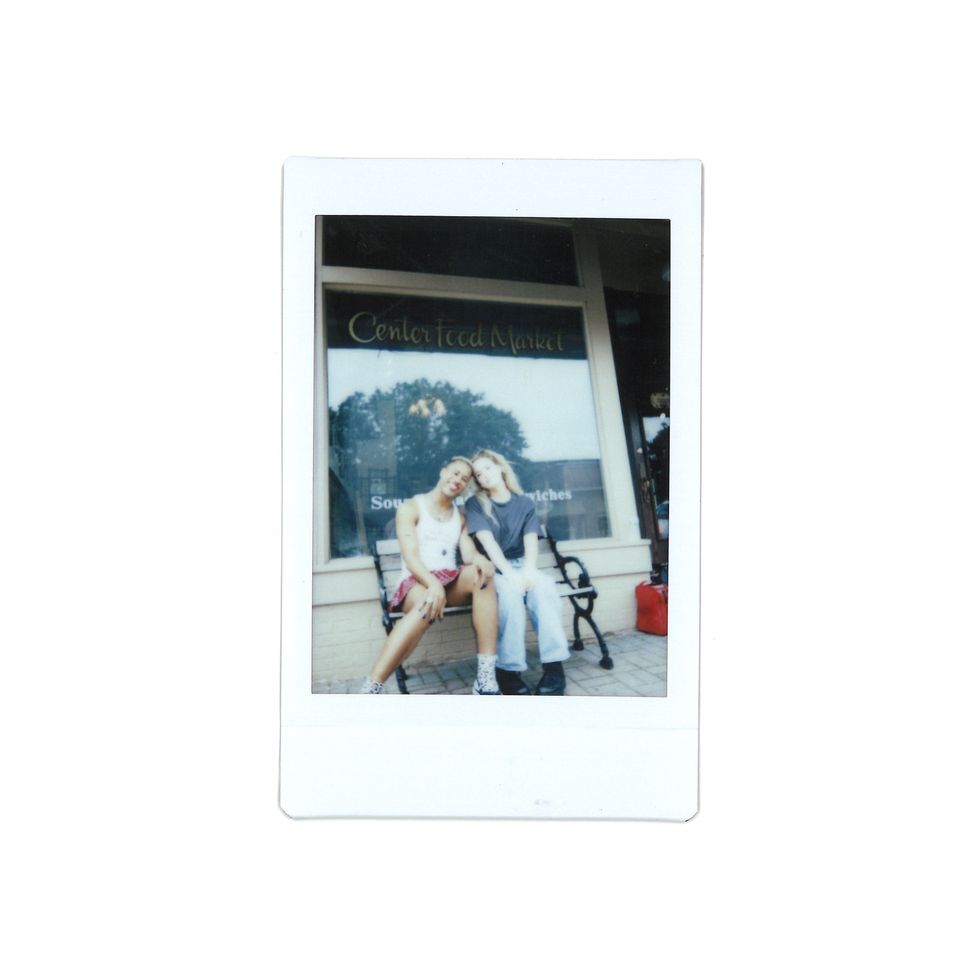
She gestures to her outfit, which is a cute black crop top and light-wash baggy jeans, accented by a few rings, and a smudge of eye makeup. "Honestly, I feel kind of crazy this morning," she says, picking over her food. "These are my straight-person clothes from when I was in high school. My high school boyfriend's hoodie is in my closet in my childhood home. Like what the fuck am I doing?"
Fletcher says this with charming, but self-deprecating humor. It also underlines her nerves, something she's dealt with her entire life.
Fletcher is nervous about a lot today. She's showing me her hometown, giving me tons of access to her personal life, and she says I can ask her anything. In just a few weeks, she'll have a new EP out, and it's out now. You Ruined New York City For Me documents a torrid love affair with a woman through the lens of its devastating aftermath, while Fletcher was caught in the eye of the storm. Acoustic guitars, 808s, and virtuosic singing illuminate Fletcher's tortured but universal love stories. At the time of our early July meeting, that EP's first single "Undrunk" was climbing the pop charts. Only a few months prior, she performed the song on The Tonight Show with Jimmy Fallon, nailing her first late night TV performance.
Fletcher's lyrics reveal a fearless willingness to lay herself bare, even if it's messy. But she can't help it. It's an honesty that her heroes — from Bruce to Patti Smith, from David Bowie to Joan Jett — built their careers on.
The chorus of "Undrunk" is as anthemic as it is tragic: "Wish I could get a little un-drunk so I could un-call you/ At 5 in the morning, I would un-fuck you/ But some things you can't undo/
I wish I could un-kiss the room full of strangers/ So I could un-spite you, un-lose my temper/ But some things you can't undo/ And one of them's you."
But Fletcher is 25 years old, meaning she grew up with the same influence of Britney Spears, or Christina Aguilera that most Millennials did. We talk about the fact that at one horrifying point in pop culture, the subject of these superstars' sex lives was headline news. Fletcher is part of a new generation of female pop stars with social awareness and feminist values that skirt toxic, patriarchal formulas for success.
Related | 100 Women Revolutionizing Pop
"I am an anti-pop star," she says. "I don't want the glamorous cookie-cutter bullshit. Even from an artist perspective… in my music, I'm a songwriter first. I like to tell a story, and I like when people tell me their stories. I have to be honest about what's going on, no matter how messy it is, to say something fucking impactful, even if that's just by telling a simple story about something real that happened to you. You don't have to be the president or cure cancer, but you can tell the truth. That's a choice I can make."
As far as being a queer woman in music, Fletcher considers success as being an example to other young queer women finding themselves. "None of this has come easily or naturally, but if I can be something real for someone else who was like me as a kid, I'll know I've done some good," she says.
Fletcher continues to reflect, her eyes flickering with tears. "The way music and fame have been all set up, it's designed to build women up and destroy them," she says. "I have compassion for young women who've had to go down that road because it's like you have to tick these boxes. Are you curvy and conventionally beautiful? Do you dance? Can you sell a fantasy for men? If so, then you're it."
Fletcher rolls her eyes at this thought, looking back on what led her to where she is now, in a place of freer self-expression, knowing her path could have turned out differently. In 2011, Fletcher had her first brushes with public life when she appeared on season one of The X Factor's U.S. series, as part of a country-pop group called Lakoda Rayne. At the time, she was about 17 years old, living out a dream of singing on big stages, but moreso on a path laid out by the fabricated female pop stars before her.
The fun is in learning how Fletcher has since disrupted that model to create success that is authentically hers.
---
We finish lunch and head back to Fletcher's Jeep for a drive to the boardwalk, where she wrote some of her first songs.
Growing up, Fletcher was the odd one out and told early on she had to fit a certain small town mold. Fletcher's parents were hard-working providers, but distant: her mother would be gone up to five days at a time, as an international flight attendant right up until 9/11, and her dad pulled 80-hour work weeks in the automotive industry. Babysitters occasionally became stand-in parents. Fletcher's younger brother, meanwhile, was opposite her with his love of boats and business.
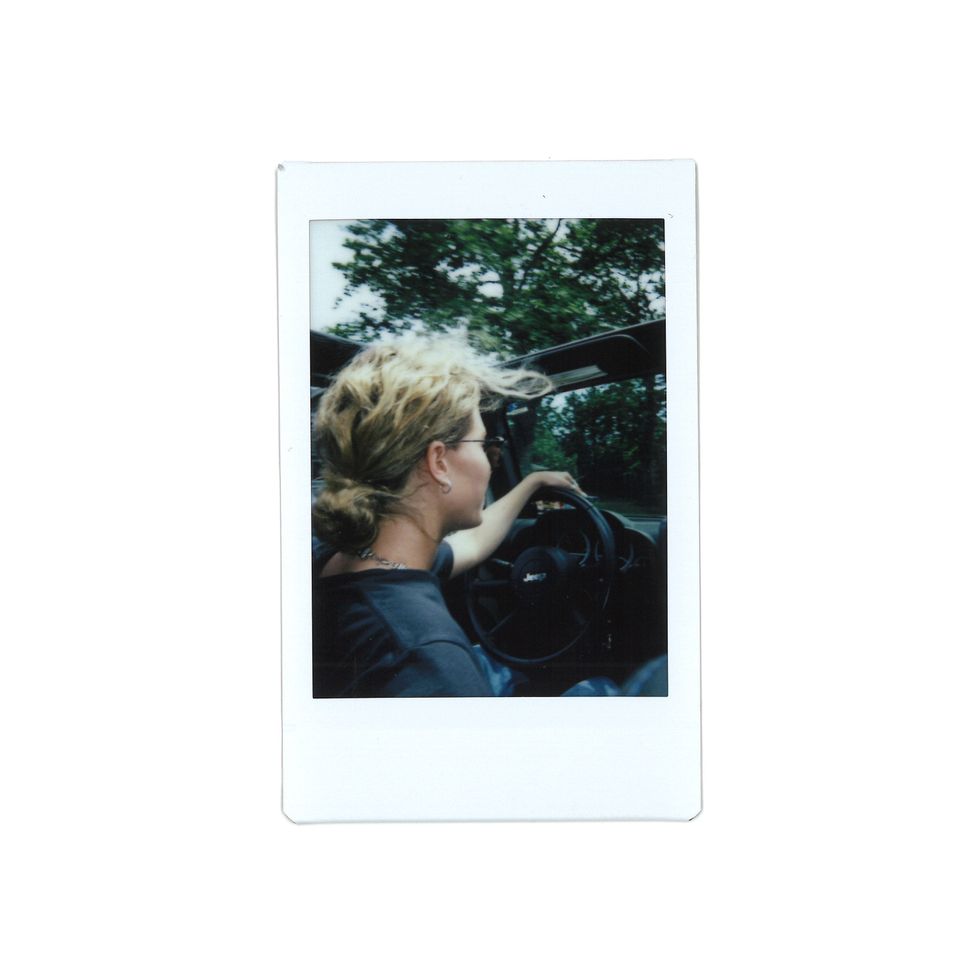
"I'm not gonna lie," she says. "It was really hard when I was younger. If you were straight and a young woman, you had to like, date a football player, wear your hair a certain way, maybe even play a sport, maybe you were active in church, got good grades, lived for your family, and that was your life until you went to college and studied something traditional. Some people never stray from that track and it's all set up for them. And I did most of that, but I'm not kidding when I tell you it was painful."
Tradition and living under others' expectations suppressed Fletcher, to the point of affecting her creativity. As we cruise along, Fletcher, eyes steady on the road but laughing wildly, gives a few lighthearted examples of this. As an adolescent, having already discovered she loved singing and music, Fletcher says she was encouraged to take piano lessons in a strip mall off the interstate, which we drive by. She jokes about quitting lessons because she couldn't get past "Mary Had a Little Lamb," and her teacher reminded her she had other talents to pursue instead. In the car, she sings a few a capella bars of one of her favorite songs to perform back then: Hannah Montana's "If We Were a Movie." Fletcher shares another hilarious story about going to etiquette classes as a teen. There, she took professional glamour shots that featured a "business woman suit, my fake smile, and a flip phone."
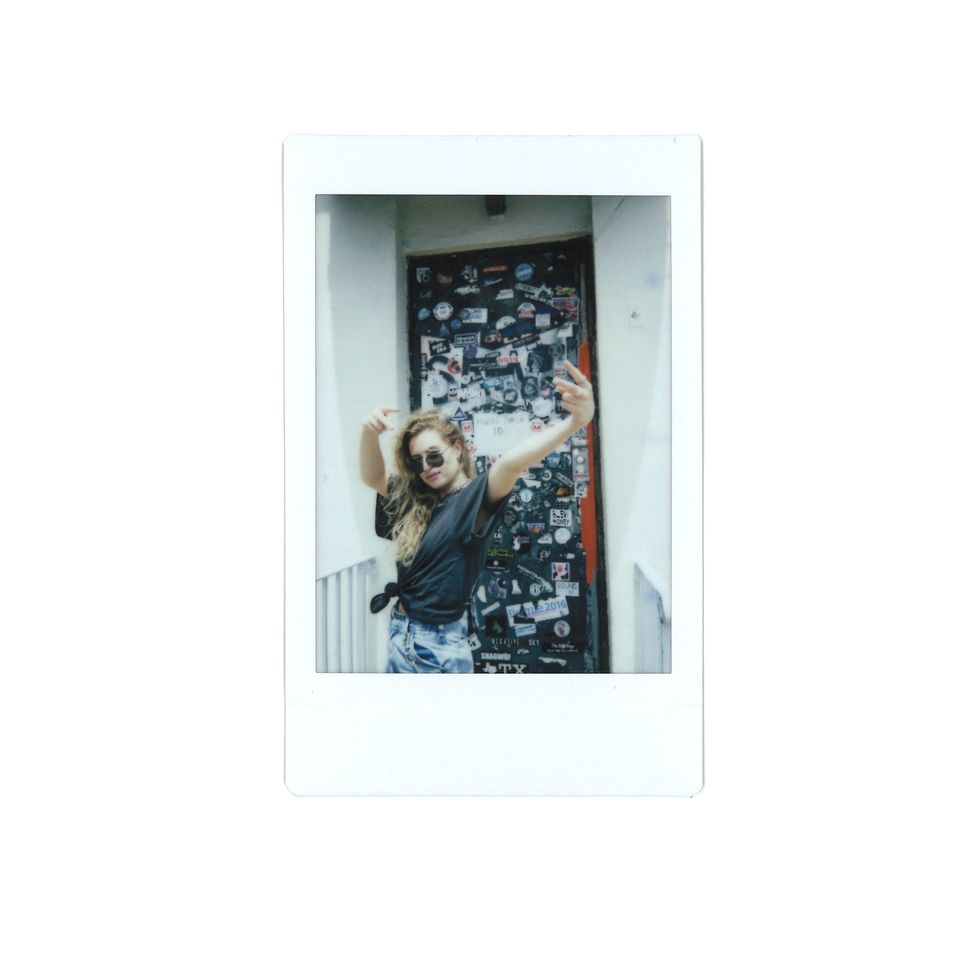
"They literally said that if ladies have to fart in public or around guests in their home, they had to do it in a napkin," she says, laughing. "Can you imagine? How awkward is that? You're already gassy and then you say 'excuse me' and reach down to your butt and let it rip… in a napkin? Sorry, no. I'll let it rip in the open air if I have to, thank you very much."
Ironically, by high school, Fletcher's singing interests got her a gig performing as Disney princesses in costume for kids' parties around Asbury Park.
But as funny as the memory might be for Fletcher now, at the time, dressing as Snow White was yet another costume she wore. "Deep down, I was wanting to express my sexuality," she says. "And in middle school, I was in love with a best friend of mine who was a girl. I realized I had to just cut that part of myself out. And it gave me so much anxiety my whole life because [as I got older] I'd lie to myself and say,'It's not a big deal. I have a boyfriend right now. It's all going to be fine.'"
One of Fletcher's first songs was co-written with a friend when she was around 12. The two girls wrote it in a house by the boardwalk, framed by sand and ocean. There were "boy, you lost me" lyrics, not unlike Destiny's Child singing about being grown-ass women when they were barely out of high school. Fletcher lets loose a cackle as we sit in the Jeep parked by the water. "I had literally no idea what I was talking about," she says.
---
Still not out, Fletcher continued navigating the awkward stages of her New Jersey childhood. But a move to New York City would alter her trajectory for better and for worse. She was attending New York University's Clive Davis Institute of Recorded Music at Tisch's School of the Arts, but her chronic anxiety was at an all-time high.
"When I got to college, I started taking classes like 'The Science of Happiness,'" Fletcher recalls. "And all these classes cater to mental health, and I took them out of desperation to figure out what was going on with me. It had been affecting my social interactions, and finally I caved and found a therapist."
"I'm a white cis female who can express my sexuality freely. So many in our community never get that privilege. I have to check my own privilege all the time. There's still so much work to be done so that we are all free."
Fletcher tells me that therapy helped her finally come to terms with who she was. As it happened, coming out wasn't as big a deal as she thought, especially not to the people she feared would ostracize her most. Fletcher knows that makes her lucky.
"I'm a white cis female who can express my sexuality freely," she says. "So many in our community never get that privilege. I have to check my own privilege all the time. There's still so much work to be done so that we are all free. Why are trans women of color still being murdered at such alarming rates? I'm frustrated that as a white girl who is digestible or palatable to white masses of America, that I get to say things that so many people still can't."
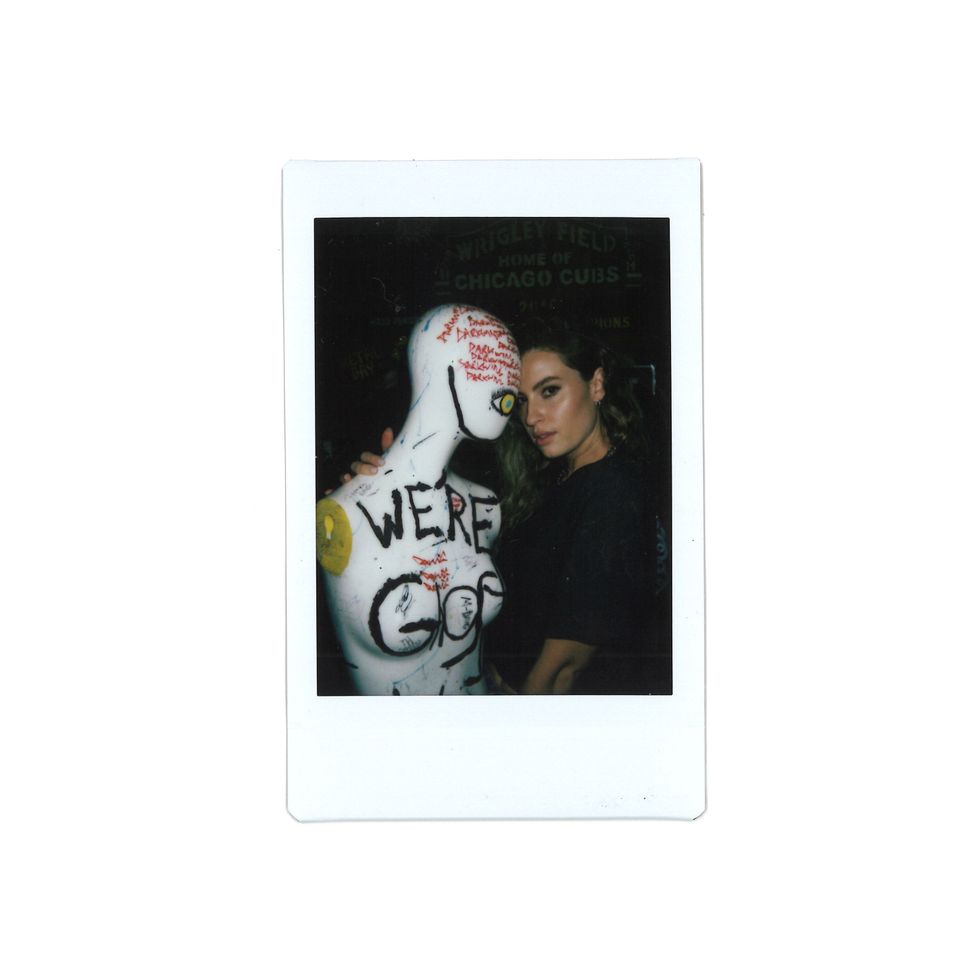
Another part of Fletcher finding her voice after coming out happened when she took a leave of absence from the Clive Davis Institute and moved to Nashville. There,she wrote and recorded her 2016 debut EP, Finding Fletcher, which featured her anthemic first single, "War Paint." That song's message displayed an artist at the genesis of her self-expression. Back then, Fletcher told a Canadian site, Toronto Paradise, that "War Paint" specifically was about "fighting for love and being unafraid to stand up for your beliefs without worrying about the consequences."
Fletcher is just beginning to share the story behind her new EP, You Ruined New York City For Me when we arrive at The Saint, located on Asbury Park's outskirts.
The Saint is the first place Fletcher played a hometown live set. She says it was minimal, consisting of only an acoustic guitar and her voice. She knocks on a side entrance (the bar isn't open yet), and hugs the owner, Scott Stamper when he lets us in. The bar and music venue is known for promoting local talent, and since its 1994 opening, its stage has hosted a wide range of touring acts during their early careers, from Jewel to Creed. The darkened bar is lit up by Christmas lights, walls covered in band stickers, and the bar itself littered with knick-knacks. There is a charming artist lounge area tucked in the bar's corner away from visitors, which includes an out-of-tune piano with broken keys, a worn-in couch and a giant stuffed monkey.
Fletcher stands on the stage for a moment and looks out into a crowd of me, her publicists, and Stamper, all collectively products of a life she's created. I am writing about Fletcher, her publicists coordinated this trip to Asbury Park with me, and Stamper saw great potential in a post-X Factor star, who later relocated to Los Angeles to make a name for herself.
"I'll be sure to come back here when I head out on tour," she says to no one in particular.
We leave the bar and drive to our final stop. Fletcher reflects on the relationship that ruined New York (and gin-and-tonics, Quest bars, and reality TV) for her when I bring up "If You're Gonna Lie."
It's hard to trace the timeline of what happens next, but Fletcher found herself embroiled in the ill-fated romance that would inform You Ruined New York City For Me. Whirlwind love affairs are often disorienting.
"I found someone else's panties in the pocket of a leather jacket I'd loaned my girlfriend," Fletcher says. "They weren't mine."

The song's pleading lyric, "If you're gonna lie, just do it in my bed" points to the denial Fletcher enters before confronting her lover about her infidelity. It also points to a moment of unimpeachable truth. "That moment was how I knew we wouldn't go forward," she says. "In my heart, it was really over. My trust in this person had been broken."
We park in the lot of an old whiskey distillery, located off a random highway road, that was converted into a printmaking space and recording studio. There, Jen Decilveo, who has written and produced music alongside Beth Ditto, Anne-Marie, and more, is waiting to finalize "All Love," a track that puts a bow on mine and Fletcher's time together and summarizes a sense of bittersweet closure for the singer.
We walk upstairs to the studio and Decilveo embraces Fletcher, who slouches into a swivel chair and takes a spin. Decilveo cues up an almost-mastered version of "All Love" on the high-definition sound system.
The lyrics wash over me. "We started out as friends in the Lower East/ Did a couple drugs at the house parties/ Late nights in taxi cabs/ Wish I could have 'em back." Later, Fletcher is in a bar when her ex walks in: "When you walk in the bar with someone holding hands/ Introduce me to her, say I'm just an old friend/ And you ask how I've been/ I say I'm doing fine but I'm fucking lying."
"It doesn't matter who broke your heart. Like if it was a man, a woman, a trans man, a trans woman, a nonbinary human being who broke your heart, it is your heart that's hurting. The path to healing might be different for everyone, but heartbreak is universal."
Then, Fletcher begins numbing herself with shots, as if to block out her memories and to deny what's happening right in front of her. Fletcher's ex is kissing her new flame on her neck. The old feelings are creeping back in,ut she has to find a way to accept reality: "It's all love," she sings, resigned and resolute.
The song's backing track of drums and guitar cuts and Fletcher's voice — pained yet resilient— remains, drawing out a final run of the word "love," sung from a lifetime of experience. All her life she felt like she was losing. Anxiety, the pressure to fit in, and heartbreak once crippled her. Singing was the only thing that made her feel like a winner. It was her bridge to the life she has now.
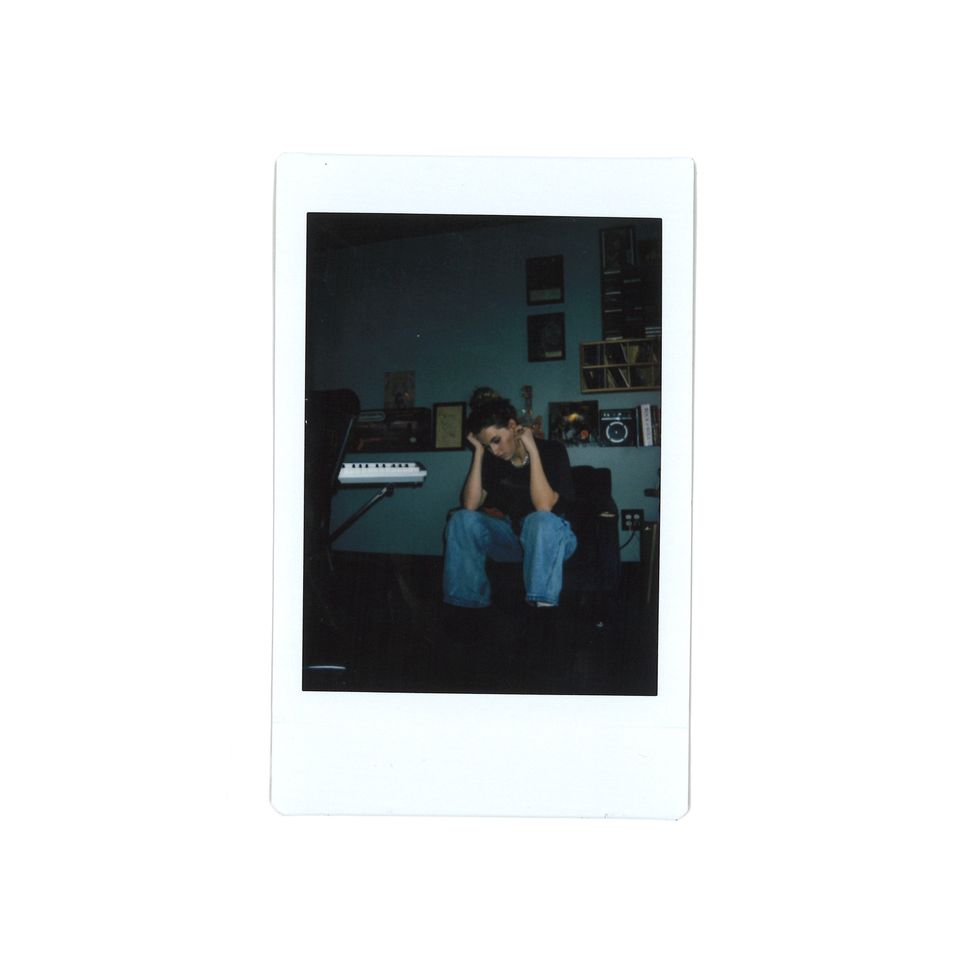
At The Saint, Fletcher casually mentioned that she, when playing the role of appropriate straight girl, was rewarded by her high school peers and named Homecoming Queen. By then, Fletcher had gained experience modeling, taking etiquette classes, being on national television, and doing all the things she could to "be a lady."
Now, the ex-beauty queen wears no masks, not in her new Los Angeles home, not on a national stage, nor in the New Jersey hometown that made her. It's taken her this long to simply be herself. And now she gets to do that in front of people, and perhaps inspire them.
"I'm gonna mess up," Fletcher says. "I'm gonna say something that I don't mean. I'm gonna make mistakes. In love, in my career, and in life. What I really want people to get is my music. It's about my personal experience with people of all genders, not just with women. It doesn't matter who broke your heart. Like if it was a man, a woman, a trans man, a trans woman, a nonbinary human being who broke your heart, it is your heart that's hurting. The path to healing might be different for everyone, but heartbreak is universal. That connects us all."
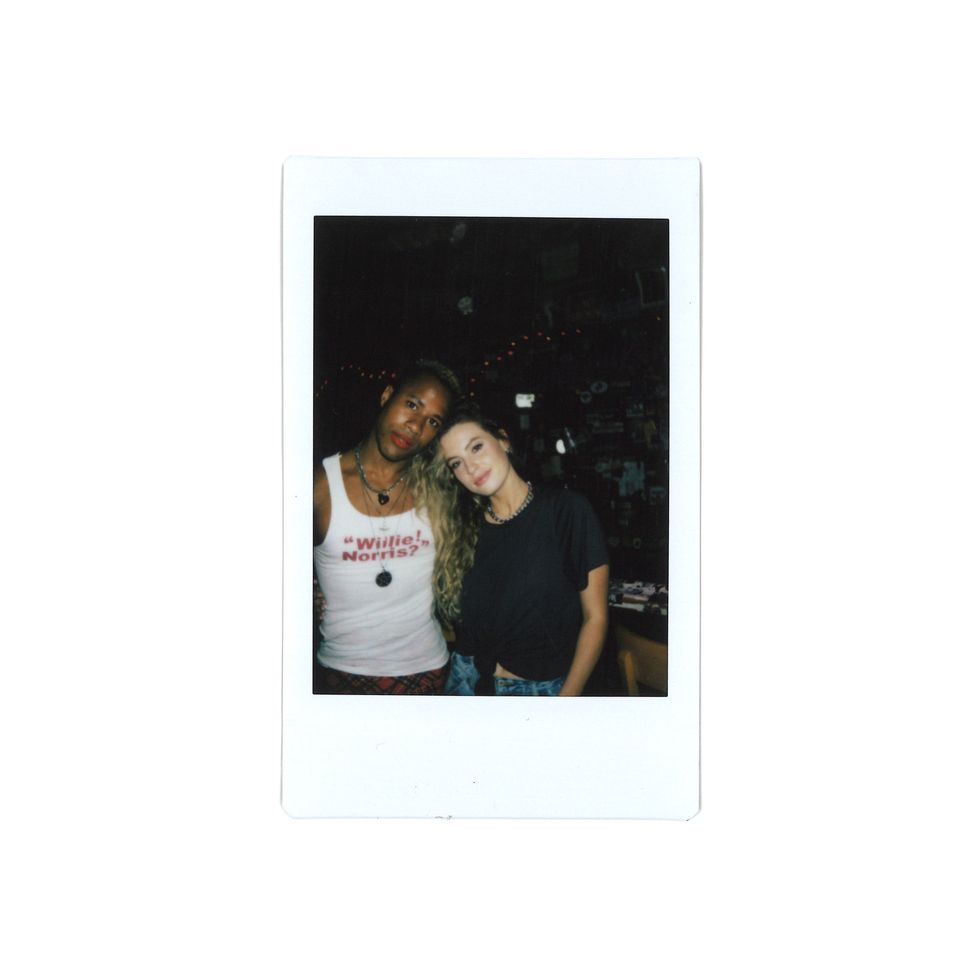
Photography: Connor Hunt
From Your Site Articles